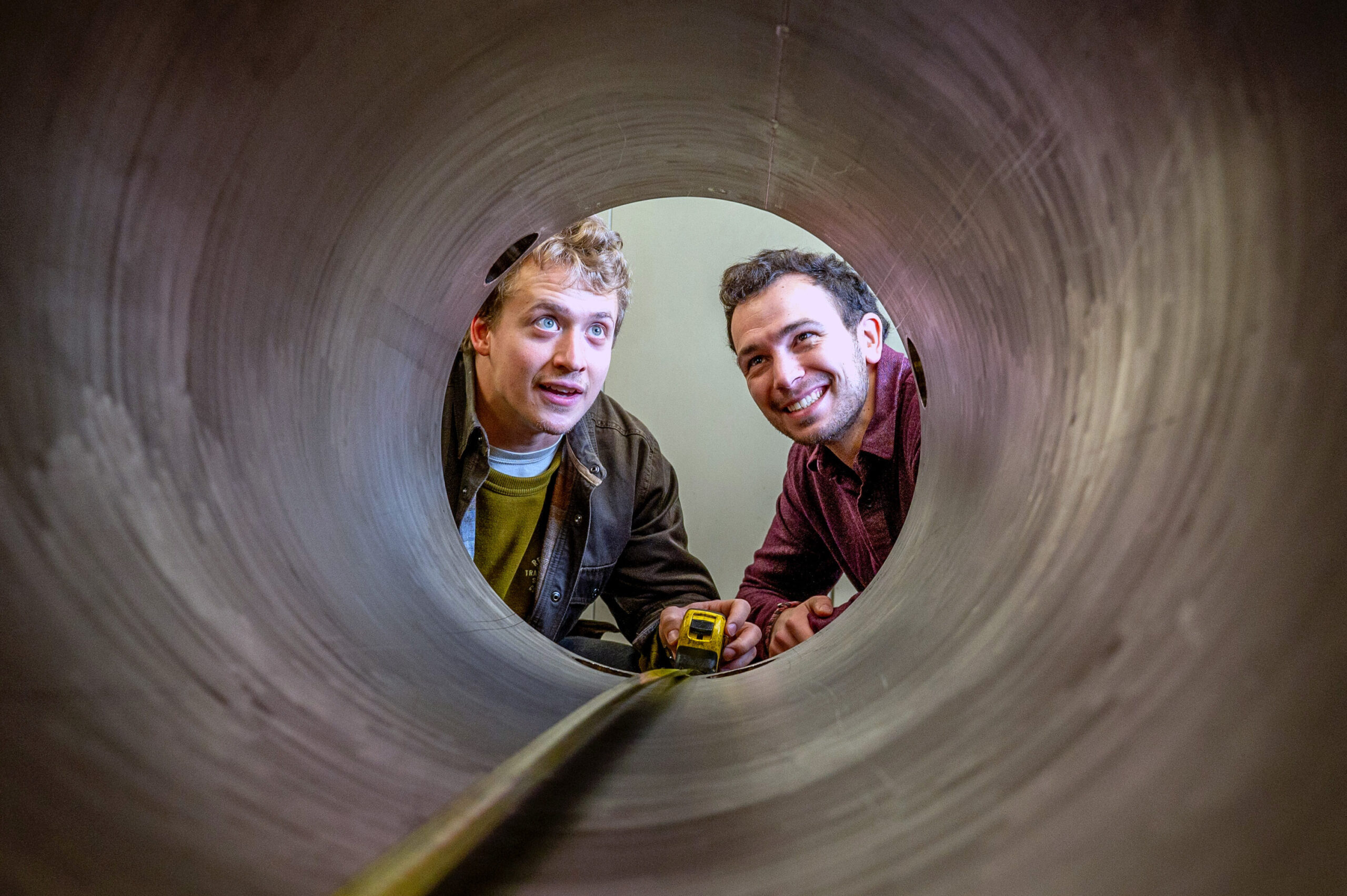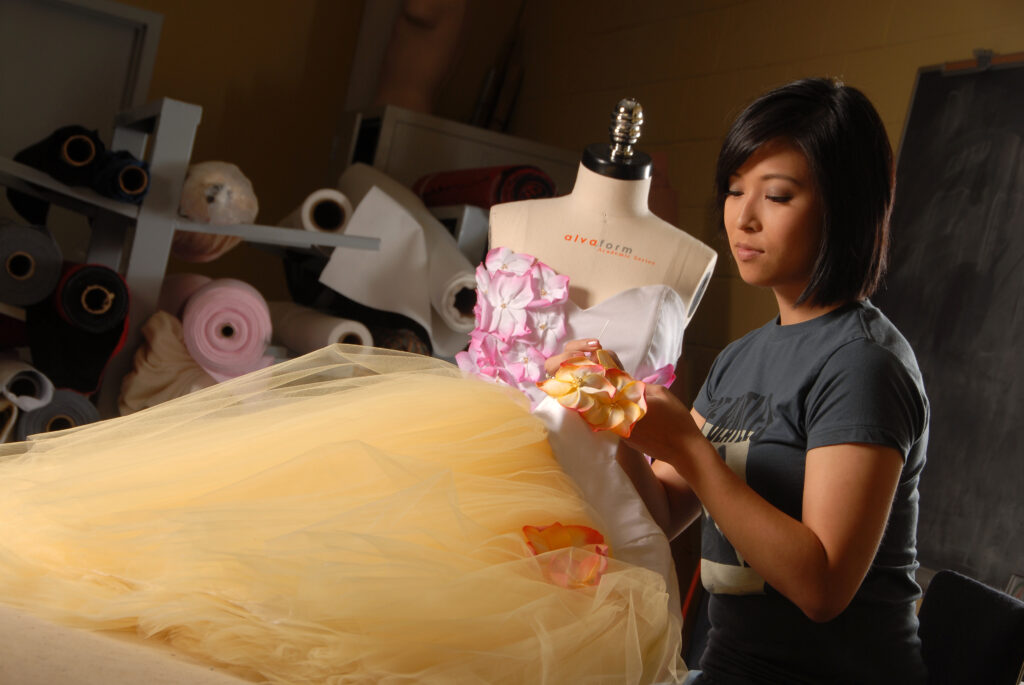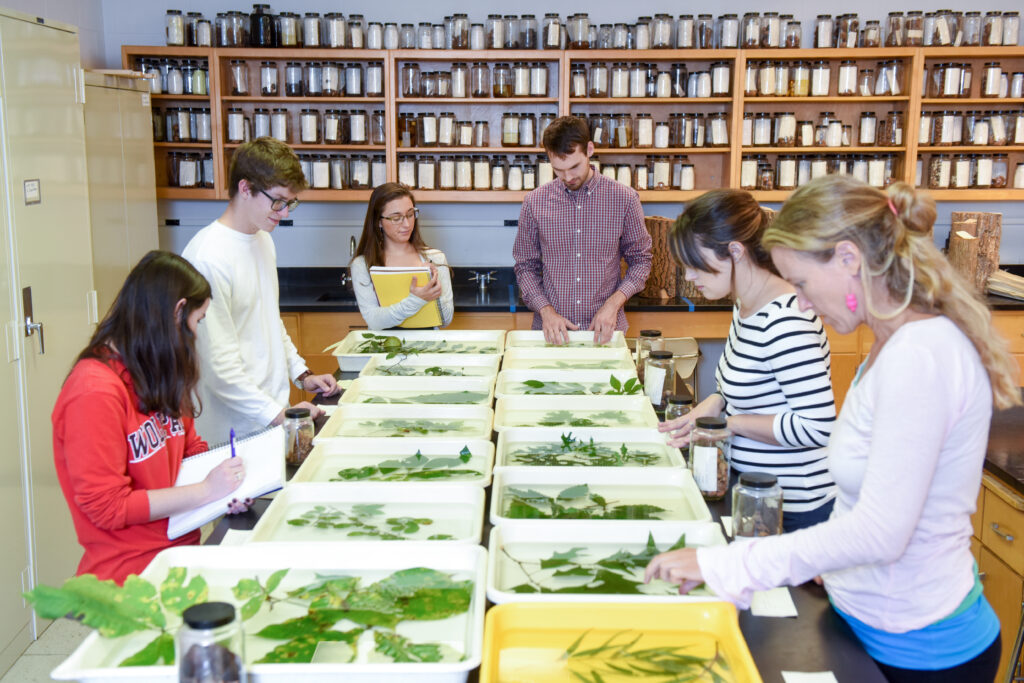Review Ways to Participate
There are many ways to include research in your schedule and balance it with your other responsibilities and interests. Prior research experience or specialized skills are not needed—these experiences are about training/educating you. Explore the different options below to determine the best fit for you.


Mentor-Directed
Students work on a research project under the direction of a mentor (usually a faculty member). Typically, mentors carve out a piece of a larger project for the student to work on.
Students may work independently, as part of a group, or under the daily guidance of a postdoc or graduate student mentor (direct mentor), who in turn is mentored by the faculty member in charge of the group (faculty mentor).
Self-Directed
Students work on a research project of their own design but utilize the expertise of appropriate mentors, as needed, along the way.
Students can freely utilize library resources and may have access to additional faculty/mentor resources—depending on project needs and limitations.
Regardless of the idea, there is always a way to move forward with what is available.
Both mentor- and self-directed research can offer a lot of flexibility in terms of time commitment and schedule (though some projects can have strict time-sensitive needs such as working with cell cultures). Typically, these options last longer than others, allowing the student to develop a strong rapport with their mentor(s) which can lead to stronger letters of recommendation.
Students pursuing these options should keep in mind that due to the less formal learning structure, it is up to the student to get the most out of the experience through seeking guidance, advice, and additional professional development. Another challenge with these options is that funding is not guaranteed. Most positions (but definitely not all) are volunteer. However, students are encouraged to seek out campus and external funding opportunities that can support their research activities. The Office of Undergraduate Research has programs that fund student research and can help students find more.

Course-based Undergraduate Research Experiences (CUREs)
CUREs are courses where real-world research has been embedded into the curriculum. Instructors and students collaborate on an original research project that has significance outside the classroom.
Students gain hands-on experience with the major steps of research, including higher level critical thinking, data analysis, and research communication.
Note: CUREs differ from lab courses that are focused on skills and concept comprehension (CUREs entail novel research and stand alone). They also differ from independent study courses that give credit for mentor-directed research (CUREs have structured curricula and students can freely sign up without first obtaining a mentor).
Research Internships
Many internships and student jobs (especially in STEM fields) can also be considered research experiences or can be easily amended to become a research experience.
In these positions, student responsibilities will include some form of information gathering, data analysis, and generating new knowledge or a new product.
Summer Programs
Summer programs (sometimes called REUs or Research Experiences for Undergraduates) exist for any interest and experience level, nationwide.
Students are paid to conduct full-time research with a paired faculty mentor as part of a larger cohort. The programs include professional development and networking opportunities.
Research Abroad
Students can combine their interest in travel away/abroad with gaining research experience.
Opportunities range from being part of a cohort with programming similar to a summer program, to independently working on a mentor-directed project with self-guided professional development and exploration.
The more formal structure of these opportunities lends itself well to ensuring students have a robust undergraduate research experience in the relatively shorter amount of time that tend to last. Because these options last for pre-set periods of time, they are easier for students to fit into their college plans, especially when they already have busy schedules.
While students may not get to know their mentor(s) as well as with other options, positive letters of recommend can still come from these experiences. Students are guided through deliberate learning objectives and professional development activities. Additionally, students tend to be a part of a cohort which facilitates networking and community building. Funding tends to be less of concern with these options as CUREs fit into a student’s courseload; many internships and most summer programs offer financial compensation; and while research abroad opportunities tend to cost money, there are numerous scholarships available to help students afford the experience and these can often be connected to a study abroad opportunity to further mark off course requirements.